Domesticated baby rabbits have a distinct diet from those bunnies living in the wild. If you encounter a wild baby rabbit, you must be careful in giving food. Although they live in the forests, wild rabbits also have sensitive guts. Read more to know what do wild baby rabbits eat!
The Wild Rabbits’ Diet
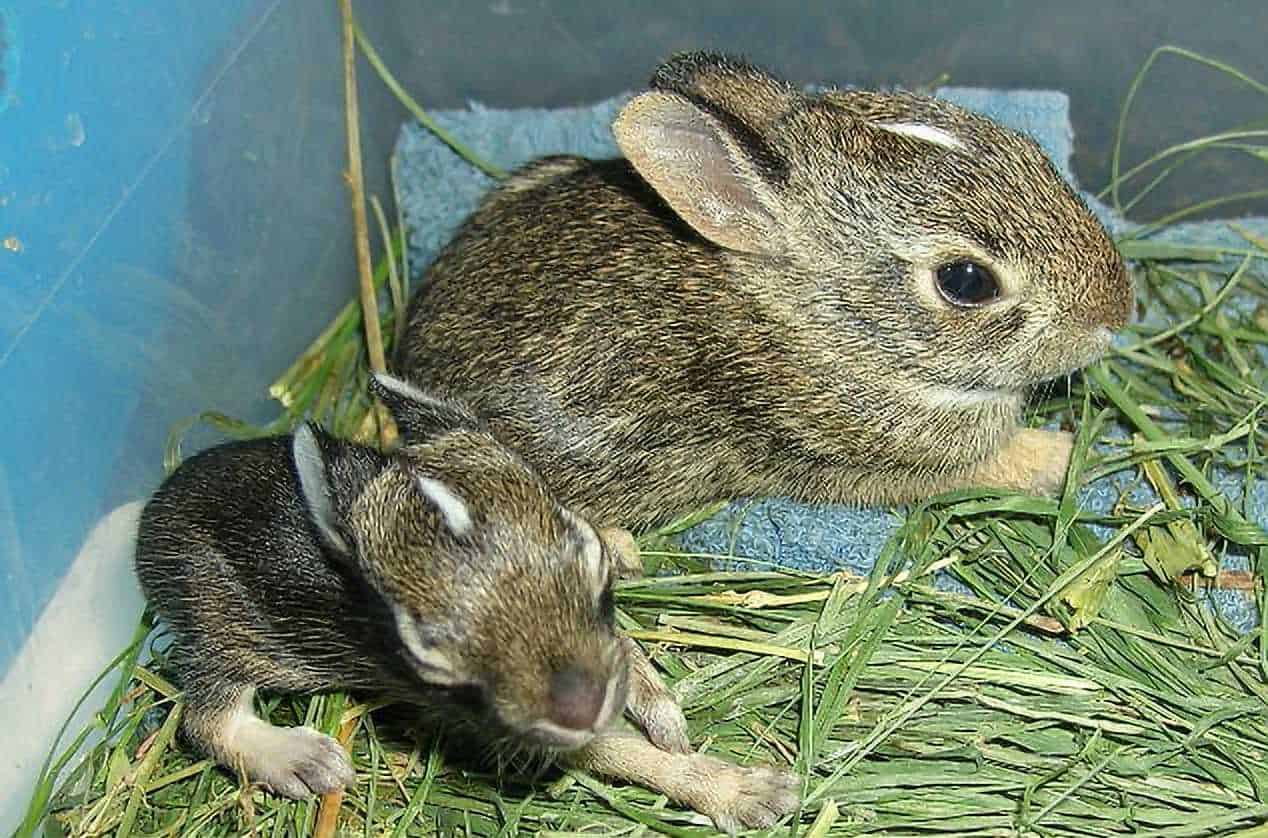
If you are a rabbit owner, you know that domesticated bunnies love to eat hay, pellets, veggies, and fruits. Surprisingly, these are not the food that wild rabbits prefer.
They feed on what is available in their surroundings. Because of limited sources, they don’t enjoy the varieties in their diet compared to the tamed ones.
Unlike domesticated rabbits, the wild rabbits’ diet differs depending on the temperature. As we all know, the vegetation in the forest change during summer and winter. Wild rabbits are used to this kind of cycle, so they are used to consuming available foods.
During summer, rabbits in the wild feed on tree seedlings, clovers, and green and dry grasses. They also love to eat forbs, shrubs, and leafy weeds. Since foliage is not available in winter, they graze on dry leaves, twigs, and barks.
Although wild rabbits live for survival, they are picky eaters. They only want to eat the freshest greens in the wild. They will climb trees to reach the freshest leaves.
It is because these leaves are rich in nitrogen content. When wild rabbits cannot find fresh leaves, they will go to another tree to look for some.
If you are wondering if wild rabbits love veggies, they eat them, but they don’t love them. These bunnies prefer twigs, branches, and flowers to fruits and veggies. They base their diet on the nutrients they can get rather than the foods’ taste.
In terms of water consumption, wild rabbits need more water than food. Without enough water, they cannot digest the foods easily. Aside from that, they lose more weight if they don’t drink much water.
It is essential to know the diet of an average wild rabbit to give you an idea of what to give to the wild baby rabbit. As soon as the wild baby rabbits start to consume, they eat what the adults feed on.
Giving milk to a wild baby rabbit
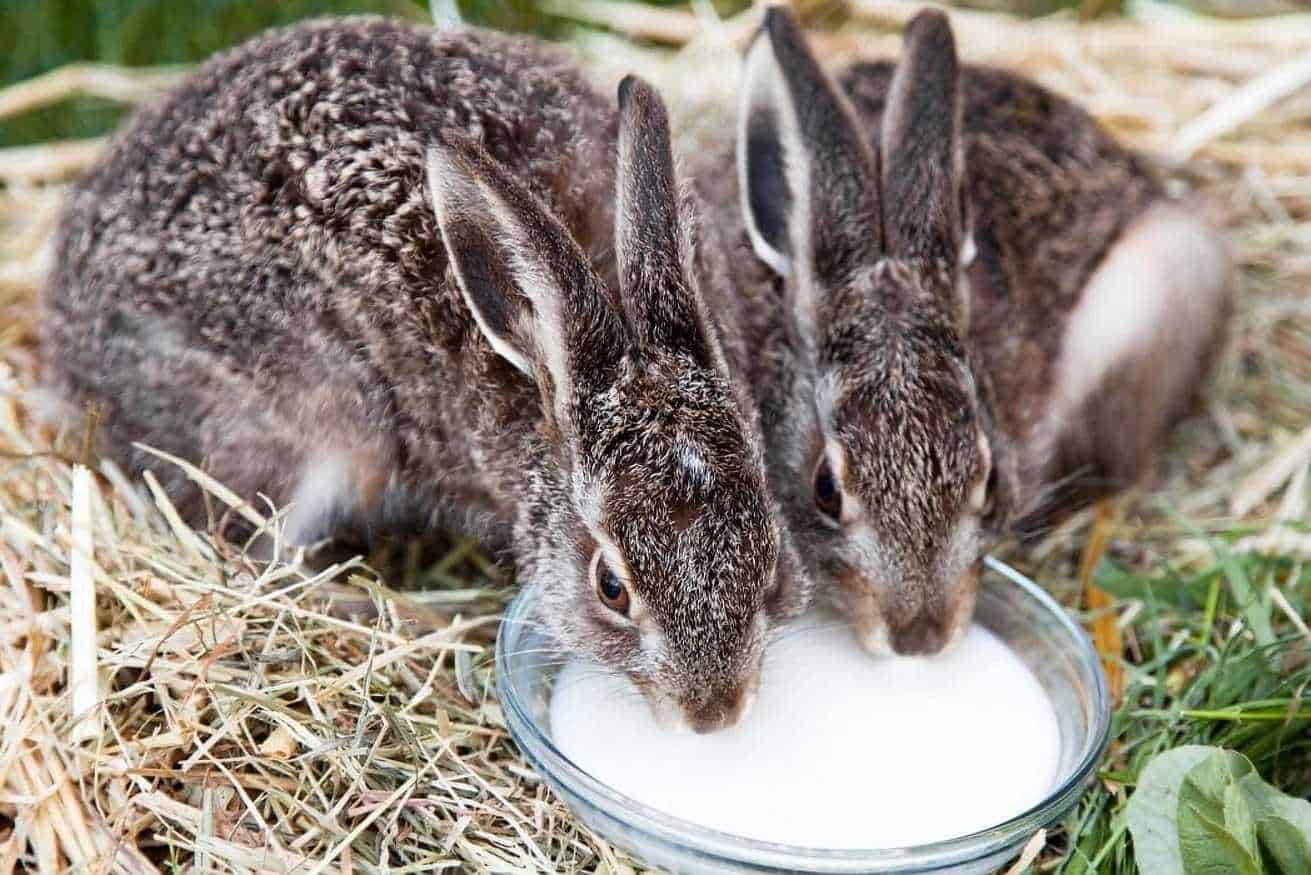
The amount of milk you should give will depend on the age of the baby rabbits. For wild baby rabbits that are newborn to two to three weeks, you will need to feed them some milk.
You should give them regular formula milk for kittens or goats. You can also add some probiotics to help the bunnies have healthy guts. Never provide them with cow’s milk and milk for puppies.
Use a syringe to feed the wild baby rabbits. Feed them twice a day only. You must give 2 to 2 ½ cc /ml each feeding for newborns to one-week-old rabbits.
For 1 to 2 weeks old, the servings must be 5 to 7 cc /ml each feeding. 2 to 3-week old rabbits must consume 7 to 13 cc /ml per serving. You can gradually give them some hay, fresh greens, and water.
When they reach 3 to 6 weeks, you can give them 13 to 15 cc /ml for each feeding. For cottontail or brush bunnies, you can release them in the wild. But for jackrabbits, it may take you about nine weeks before you can finally set them free.
Giving foods to wild baby rabbits
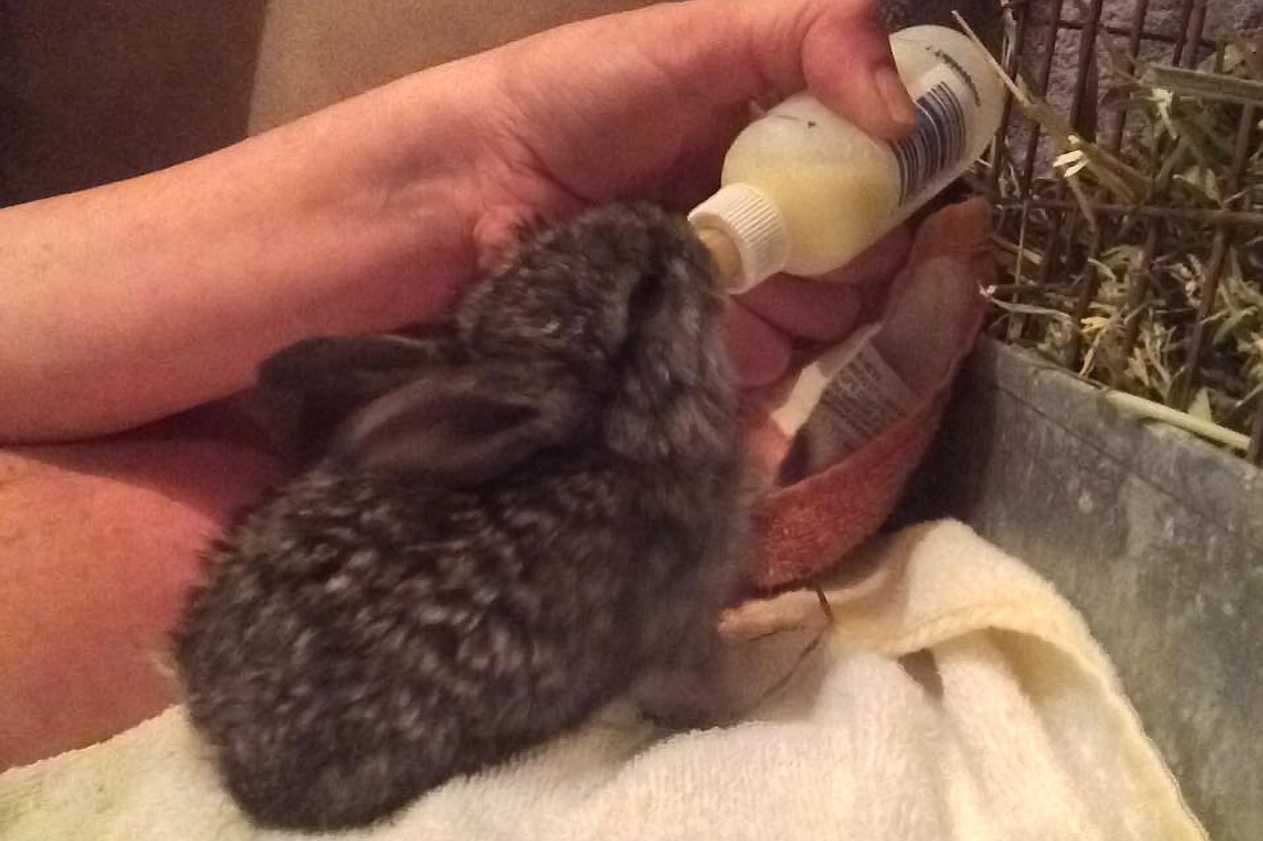
Baby rabbits have more delicate digestive systems compared to adult rabbits. Because of this, you will need to be more careful when giving them food. However, you can change the diet of wild baby rabbits more quickly than those used to the foods in the wild.
Alfalfa Hay
When rabbits are still babies, you need to provide them with alfalfa hay. It is best for them since it is high in protein. It can add their weight and develop their bodies.
Aside from growth, protein also contributes to cell and tissue repair. You should add variations to the rabbits’ diet so you won’t have any difficulty making changes in their food.
Carrot Tops
Baby rabbits may have difficulty digesting a carrot. But giving them some carrot tops is recommended. This part of the carrot promotes good digestion.
Aside from that, it also helps in nutrient absorption. Carrot tops are rich in iron, calcium, Vitamin C and K. It also consists of carotenoids that are good for the bunny’s eyes.
Italian parsley
Flat-leaf and curly-leaf parsleys from Italy and France are beneficial to baby rabbits. They are included in the few fresh greens that baby bunnies can eat. It is high in fiber which can aid the digestion of the rabbit. Plus, it is rich in Vitamin A and Vitamin K.
Dandelion Leaves
A wild baby rabbit will surely love to eat dandelion leaves. They are not only common greens in the wild, but they are also highly nutritious. Dandelion leaves are healthier than carrots, spinach, and bananas.
Foods you should not give to baby rabbits
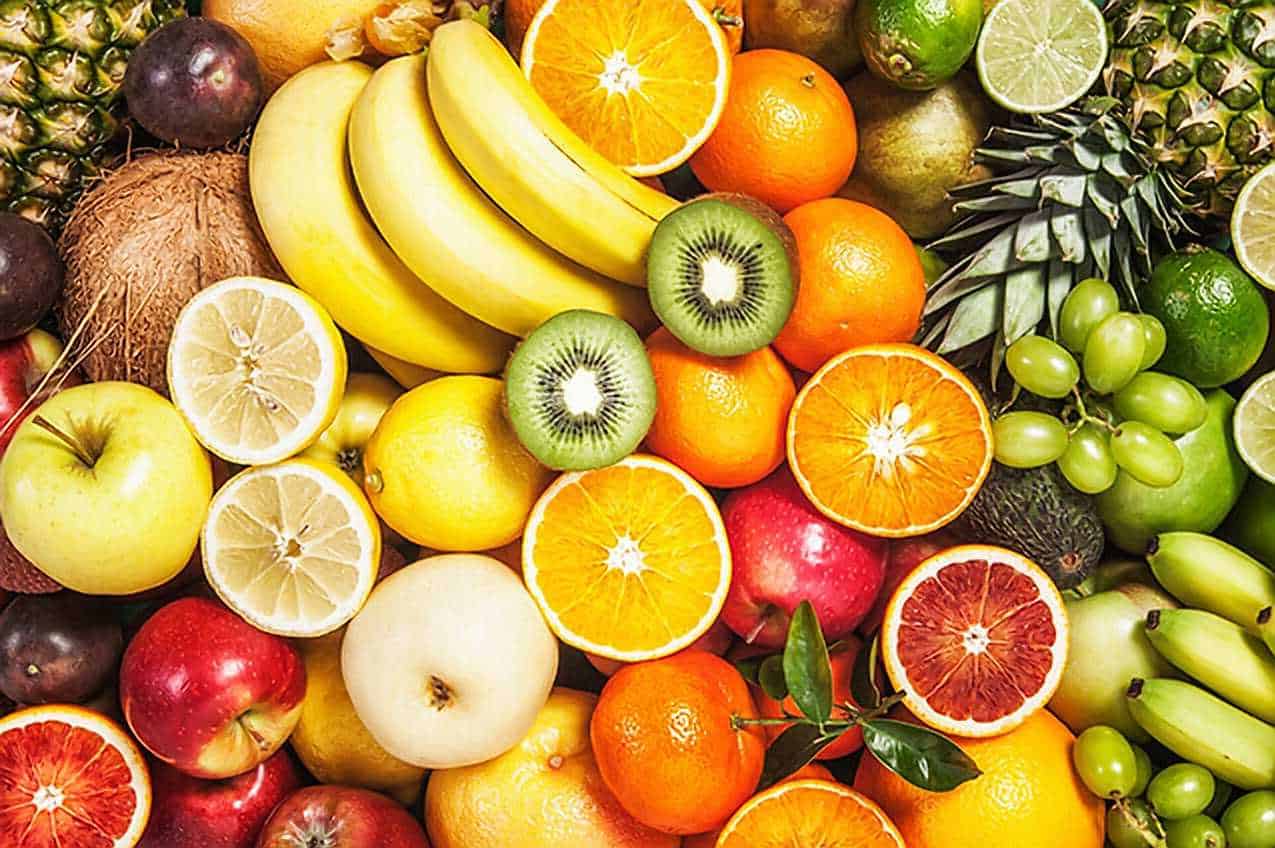
As mentioned before, wild baby rabbits have sensitive digestive systems. Although you may be tempted to feed it with delicious foods, treats must never be given.
The guts of baby rabbits are not strong enough to process foods high in carbohydrates and sugar. They may suffer from different kinds of stomach diseases.
Unfortunately, fruits are also included in foods that are not advisable for rabbits. Examples of these are berries, bananas, and apples. These kinds of treats are high in sugar.
You must also prevent giving them veggies like bell peppers, carrots, and tomatoes. But when they are in their ten weeks, you can gradually give them some treats but in a minimal amount.
Sweets like candies and chocolates are prohibited even when rabbits turn into adults. These treats are high in sugar and have chemicals that can be dangerous to rabbits.
Ways to feed a wild baby rabbit
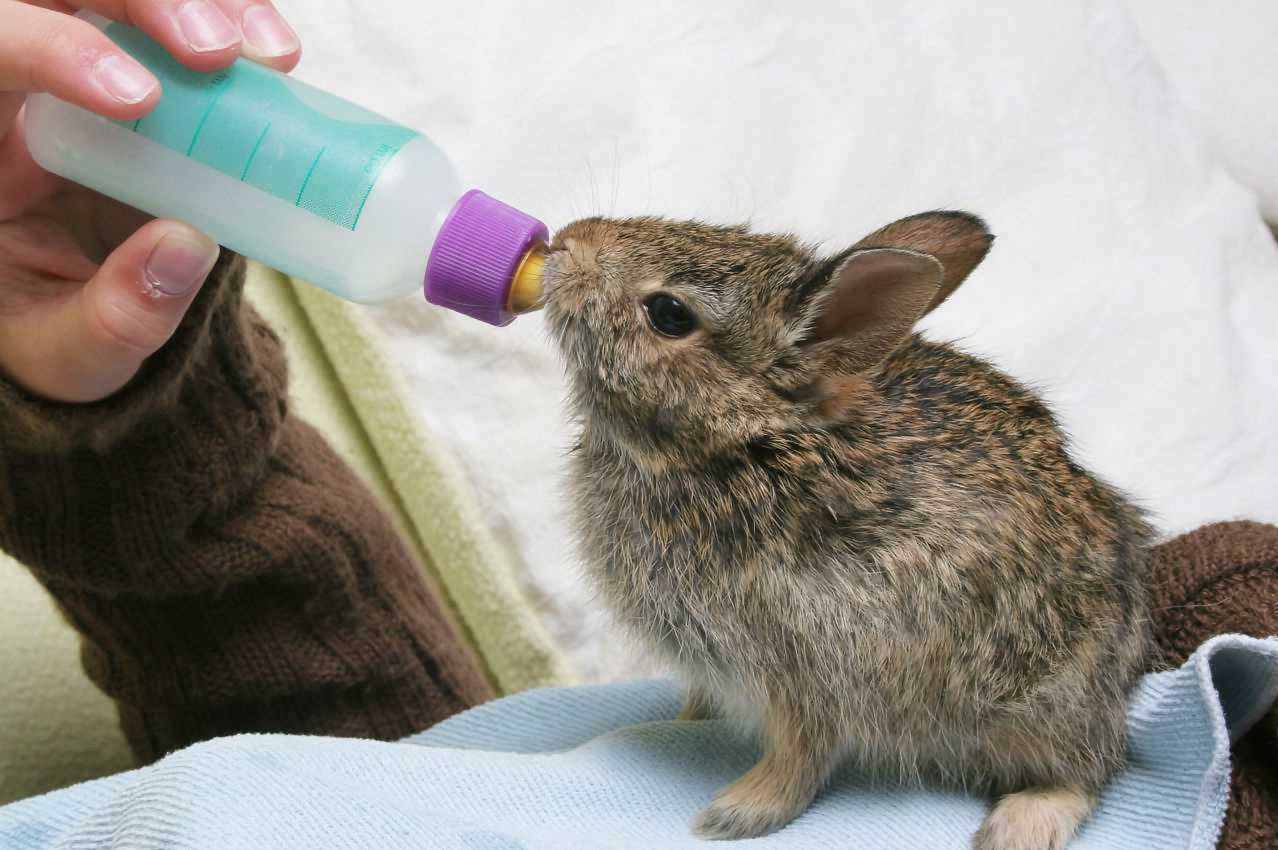
Feeding baby rabbits is a delicate task that only their mothers can excellently do. Before you feed a wild baby rabbit, make sure that it is already orphaned or abandoned by its mother.
If you find the wild baby rabbit alone in the nest during the daytime, don’t assume that it doesn’t have a mother. Does leave their baby bunnies during the day, but they come back at night and dawn.
You can also check the health condition of the baby rabbit. If it looks plump and healthy, then there is a higher chance that its mother is taking care of it.
You can also check if there’s evidence of the mother’s milk on its fur. However, if the baby rabbit looks weak, dehydrated, and injured, it can be abandoned or orphaned.
Before giving anything to the baby rabbit, make sure you know what foods are allowed for it to consume. If you are unsure what to give, check the foods listed above. You can also call a wildlife rehabilitation center so that they can take care of the rabbit properly.
It will be better to boil the milk on the stove to kill all the bacteria. You can use a syringe or a dropper. When feeding the baby rabbit, make sure to tilt its head so that the milk won’t go into its nose.
Put the milk on the side or the bottom part of its mouth. Never overfeed the baby rabbit. The amount of milk that you must give to it must be equivalent to its age and body size.
When giving greens or veggies, wash them first to eliminate pesticides and insecticides. You must also provide them to the rabbit in small amounts only. Observe how it reacts to the food before giving it a bigger slice or quantity of food.
After feeding, the baby rabbit must urinate and defecate to maintain healthy digestion. You must help it by rubbing wet cotton at its anus until it successfully urinates and excretes. You must do this after feeding sessions.
Frequently Asked Questions
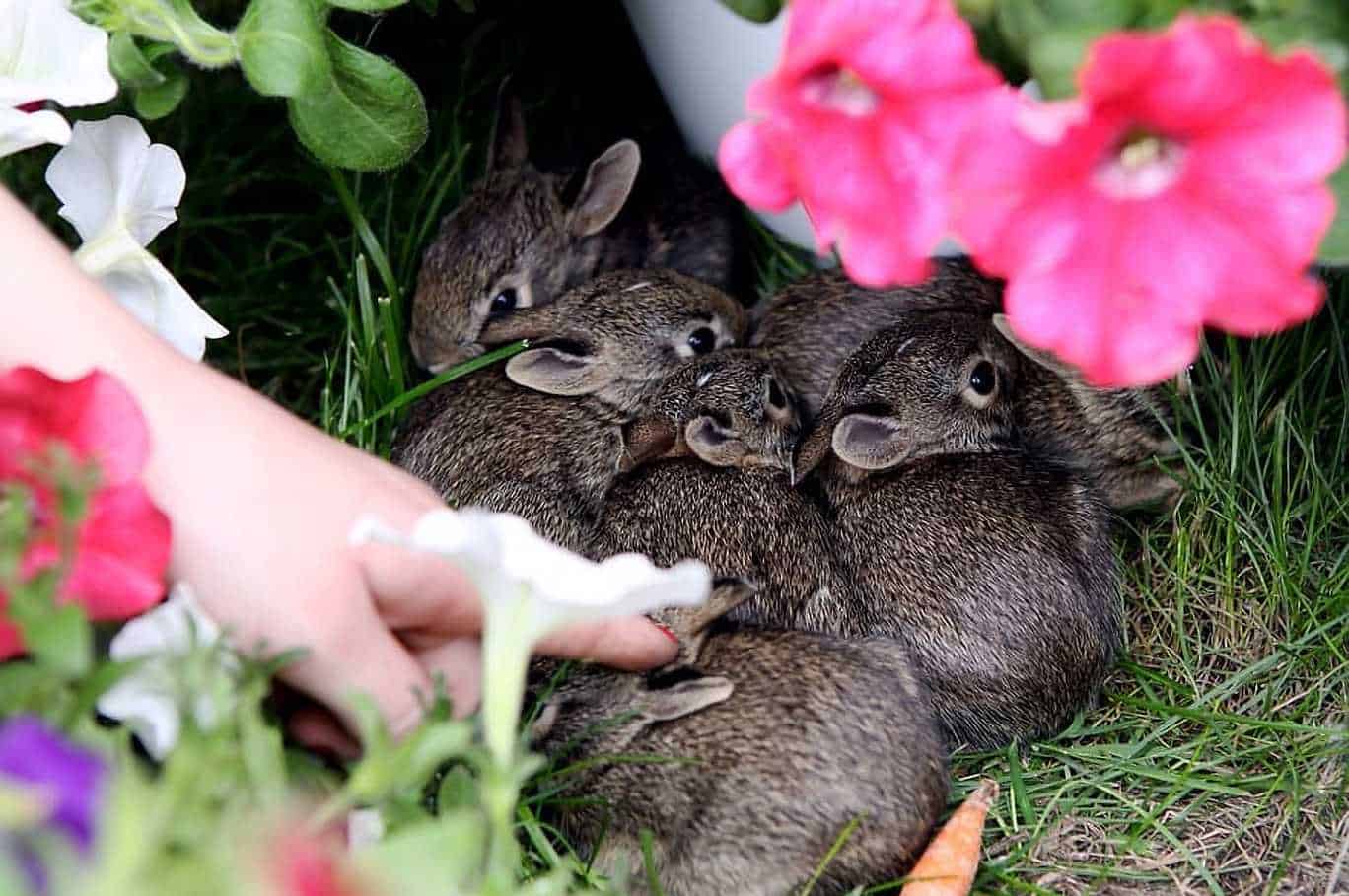
How will I take care of a wild baby rabbit?
Keep the baby rabbit in a small box with a soft cloth or rag. Ensure that its shelter is in a quiet place. It can quickly get stressed when placed in a noisy environment. You can also put a heating pad on its shelter to provide warmth.
Should I give a human’s formula milk to a wild baby rabbit?
Never give a human’s formula milk to a wild baby rabbit. You can provide it with regular kitten formula milk or goat’s milk. They are available in stores.
Summary
Although wild baby rabbits live in the forest, they require the best care possible. Answering the question “what do wild baby rabbits eat?” is vital, especially if you plan to adopt one. Once you know what to give them and how you will feed them, the task will be easier.